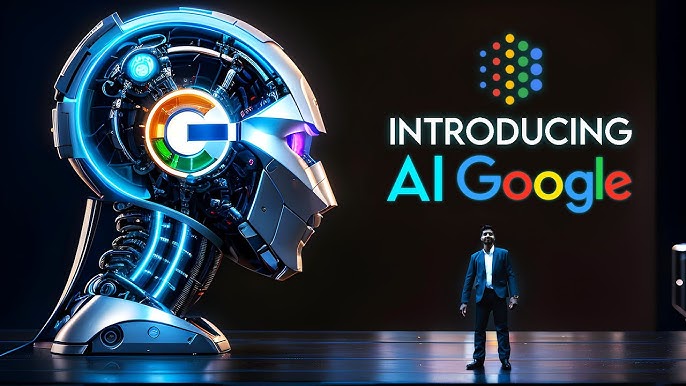Google has long been a leader in artificial intelligence innovation, and its latest developments are setting the stage for even greater changes in how businesses use AI. From enhancing the capabilities of Google Search to introducing new AI tools, Google’s ongoing advancements continue to transform industries. In this article, we dive into the latest AI innovations from Google and their potential business applications.
AI-Powered Search Enhancements
Google has recently made significant improvements to its search algorithms, incorporating AI to provide more relevant and personalized results. The search giant has introduced several updates to improve understanding of natural language and context, making the search experience more intuitive for users. These changes are powered by Google's AI technology, which allows the search engine to better interpret complex queries.
1. Multitask Unified Model (MUM)
Google's Multitask Unified Model (MUM) is a breakthrough in how AI interprets and responds to complex questions. MUM can understand and generate language, and it can process information across multiple languages and formats. For example, a user can ask a multi-part question, and MUM will provide the most relevant answers based on context and available data. This makes Google's search even more powerful by understanding the nuances of user queries.
According to Sundar Pichai, Google’s CEO, “MUM will help search better understand complex questions that require nuanced answers.”
2. BERT for Improved Contextual Search
Google’s BERT (Bidirectional Encoder Representations from Transformers) model has also undergone improvements, allowing it to better understand the context of words in a search query. This update enables more accurate results, especially for longer, conversational queries. With BERT, Google can better understand the meaning behind questions and offer more precise search results.
New AI Tools for Business Productivity
In addition to search advancements, Google has also introduced several AI-driven tools designed to improve business productivity. One notable development is the integration of AI into Google Workspace. This includes AI-powered features for Google Docs, Sheets, and Gmail, designed to help users work more efficiently.
1. Smart Compose and Smart Reply
Smart Compose in Gmail and Google Docs now uses advanced AI to suggest text completions and personalized responses based on the user’s writing style. These features are especially helpful for businesses looking to streamline communication and reduce repetitive tasks.
2. Google Cloud AI Tools
Google Cloud continues to expand its AI offerings with tools for machine learning, natural language processing, and data analysis. Google’s AutoML, for instance, allows businesses with little to no machine learning experience to build custom AI models. This democratization of AI empowers businesses to implement AI solutions without needing deep technical expertise.
AI in Healthcare: Google's Latest Initiatives
Google Health is making strides in the AI-powered healthcare space with its use of AI to analyze medical data and improve patient care. One of its most notable innovations is the use of AI for early detection of diseases such as breast cancer and diabetic retinopathy. AI tools have shown promising results in detecting anomalies in medical images, helping doctors make faster, more accurate diagnoses.
1. AI for Early Disease Detection
Google's AI systems are designed to analyze medical images and detect patterns that might be missed by human doctors. For example, an AI system developed by Google Health achieved an accuracy rate comparable to human radiologists in detecting breast cancer in mammograms. These AI models can help healthcare professionals identify diseases at earlier stages, leading to better patient outcomes.
2. AI and Precision Medicine
Google’s AI tools are also being used to analyze patient data and recommend personalized treatments. By processing vast amounts of medical data, Google’s AI can help identify the most effective treatment options for individual patients based on their unique genetic makeup and health conditions.
Conclusion: Google’s AI Future
As Google continues to develop and refine its AI technologies, it is clear that the future of AI will have a profound impact on businesses and industries across the globe. From search enhancements to AI-powered productivity tools and healthcare applications, Google’s innovations are helping companies unlock new efficiencies and capabilities.
For businesses looking to stay competitive, adopting AI solutions like those offered by Google will be essential for optimizing operations and improving customer experiences. With the continued evolution of AI, the possibilities for innovation are limitless.

